In Her Words: Marcella Regniault, Former Sports Media Executive, Finding A New Path
At a crossroads in life, Marcella set off on an epic adventure. She did the Camino de Santiago and found new friends, beautiful scenery, and time for introspection along the way.
In late September of 2021, the week I was turning 60, they tell me they're going to diminish my role as VP of digital ad operations at Disney, but my salary will stay the same. Everything will stay the same, except my title is going to get changed. I said “Excuse me. How is my compensation remaining the same when, if you decide to lay me off, my severance package will be less, and I will never ever be entitled to get a raise because I will be above the tier for my position.” I went above everyone's head to my division’s head of HR and I used every line in the book. “You say that you want diversity and inclusion and yet you're giving my job to a 30-something-year-old white male,” I said. “As a woman of a certain age, I need you to explain.” I got a severance package, which wouldn’t have been on the table otherwise.
In my second job out of college, I was working as a secretary for Major League Baseball. While I was there, Al Campanis, general manager of the Los Angeles Dodgers, went on Nightline and told Ted Koppel that blacks can't be in the front office because they don’t have whatever it takes. It was such a PR nightmare that within a week or two, every secretary got an elevated title to show the press that MLB was diverse. That was 1987. In those days, the environment was so subtly sexist. Sexism was like part of the furniture, part of the air you breathed.
After about three years at Major League Baseball, I leapfrogged to Sports Illustrated. I started as a secretary and worked my way up until I was vice president of business operations and sales development on the digital side and the second highest titled female on the business side. Those were some of the best years. I ran my own team. Everyone trusted me. I had real support and total autonomy. I just did the work that needed to be done and had a great time doing it, although we worked really hard.
One of the pivotal moments in my career came just after my first Sports Illustrated swimsuit edition meeting. In the meeting I was sitting at this big table with all these executives who knew nothing about digital. It was still a very print-centric culture. I had been working in digital since ‘98 but I didn’t speak up. My boss pulled me aside and said, “You know more than anybody in that room about this subject and you need to talk more.” Years and years later, I wrote him a note thanking him for kicking my ass because it changed the direction of my career.
Being a woman in a Sports Illustrated swimsuit edition meeting is the most bizarre thing ever. The feminist side of you is saying “This is objectifying women” and the business side of you is saying “We make so much fucking money on this thing.” I distinctly remember being on a call with the managing editor and asking “What's the rule on nipples this year? Nipples or no nipples? Are we airbrushing them out?” and thinking “Did I just say that?” Just bizarre.
I had a neighbor tell me that we are human beings, not human doings. I was a “human doing.”
After I stopped working, I realized that I was addicted to being busy. That was a revelation to me. I had a neighbor tell me that we are human beings, not human doings. I was a “human doing.” So, at first, I thought “Okay, I don't want to work.” I kept thinking that I didn’t want to take a job for the sake of taking a job. I didn’t want to work 12-hour days anymore, because that's what I did. I was very much feeling like “If it’s not a hell yes, then it's a no.”
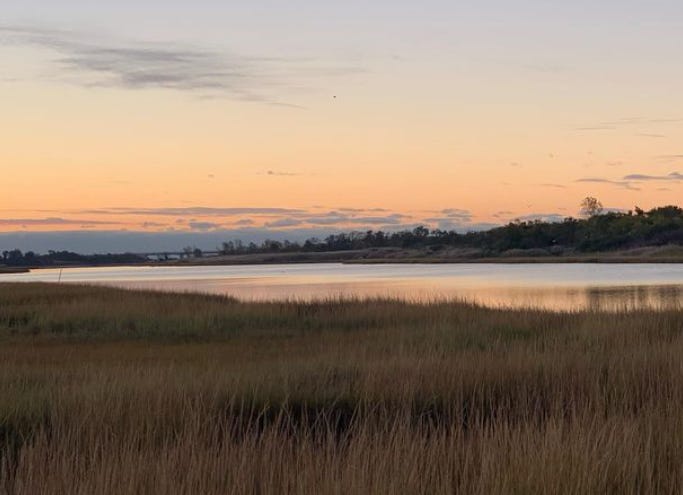
I was applying to jobs for a little while and then I just stopped. My mother-in-law got dementia and I was dealing with that. I was in Brooklyn, and she was in Long Island. Once we noticed, it happened really quickly. Within a year she was basically gone. I would go pay her bills. And then she lived with us for a little while and I was caretaking. Finally, we had to put her in assisted living because I couldn't do it anymore. And then she passed on in January of 2023. It was really hard.
After reading an article about a writer that did the Camino de Santiago, I Googled it and I went down the rabbit hole. I thought to myself, “Oh, you really need to do this.” It was calling to me. I said “Alright, we're gonna do this even though it may sound insane. And you're going to do it by yourself.” I had three months to prepare. I had already been walking twice a day throughout the pandemic and I was pretty fit, but I increased my walking. Brooklyn is flat. I went to Central Park and I went to Prospect Park to walk because they have a bit more hills, but it's nothing like a mountain. There was only so much preparation I could do but for three months, my job became walking.
I left on May 19, 2023, for the Camino Francés, which is the most common route. You start at St. Jean Pied de Port in France at the base of the Pyrenees. On day one, you walk up the Pyrenees and then down the Pyrenees into Spain. That was an 8-hour day, and it was one of the hardest, but it was crisp up on top and it was it was so beautiful and so peaceful. I walked for another 34 days for a total of 480 miles.
The culture is amazing. There are little stone churches that have been there for thousands of years, and grand cathedrals decorated with gold inside. You can imagine all the poor villagers worshipping in this massive thing. And there’s incredible natural beauty.
I met people who were my exact age who, like me, were asking what's the next phase of my life going to look like. I also met people who were doing the same thing, but on the opposite end of the adulthood spectrum.
I went by myself, but I met people along the way. On the first day, I was walking and feeling nervous and then I encountered Heidi, a nurse from Australia, and she encountered me, and we walked together the entire day and into the next day. That just keeps happening where you meet people and there’s chemistry.
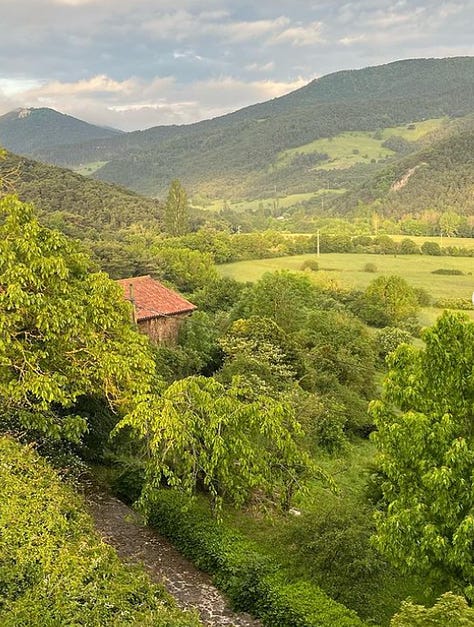
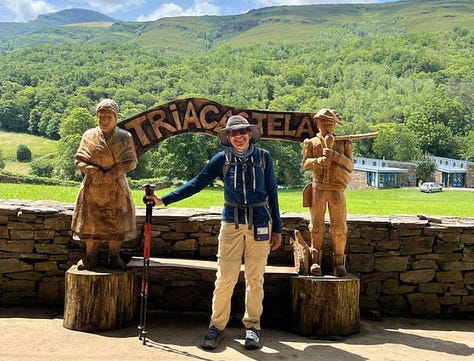
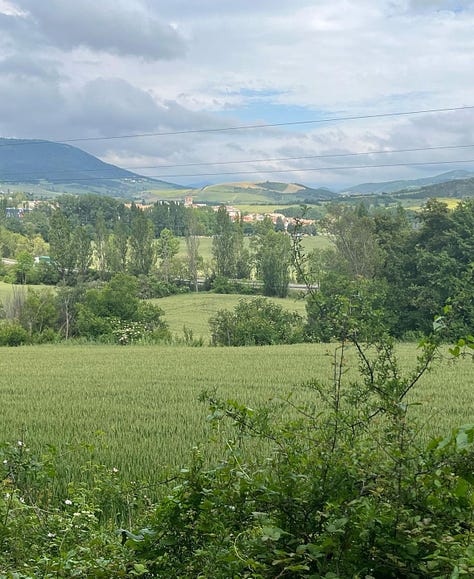
Here's the surprising thing. Lots of people who are doing this are my age. I went wanting to know what I wanted for the next stage of my life. I wanted to know that I could do difficult things and that I could meet a challenge. I wanted to do this thing while I’m still feeling good, while I'm healthy and I'm fit. I ended up meeting all these people who are in transition. I met people who were my exact age who, like me, were asking what's the next phase of my life going to look like. I also met people who were doing the same thing, but on the opposite end of the adulthood spectrum. There were young people starting school or just finishing college and starting their first job. I met a young man from Taiwan who hates his job and wants to change but still lives at home with his parents. He's probably 30 and his culture is very different. And then you meet the people who do this a lot — they're always doing Camino. You meet people in their moments. Then again, there are some people who are doing it just to increase their aerobic capability. There was a little woman from Seattle who is a real estate agent and just really wanted to get her steps in. There are all types.
Then there are these long stretches of time when you're walking alone. It can get very contemplative and very meditative. It gets very spiritual. You go deep within yourself. I did not bring headphones because I did not want to hear anybody else's voice. I wanted to hear my own voice. This may sound bizarre, but I was visited by my dad who died in 2015. I was visited by an old boss who had died. It was like I was having conversations with them as I was walking. This stuff just happens when you’re immersed in nature's beauty. I was chatting with Julie, another American journalist who I met along the way, and she said, “You're walking on sacred ground. Pilgrims have gone through here and done this route for many thousands of years.” So, there's a weight to it as well.
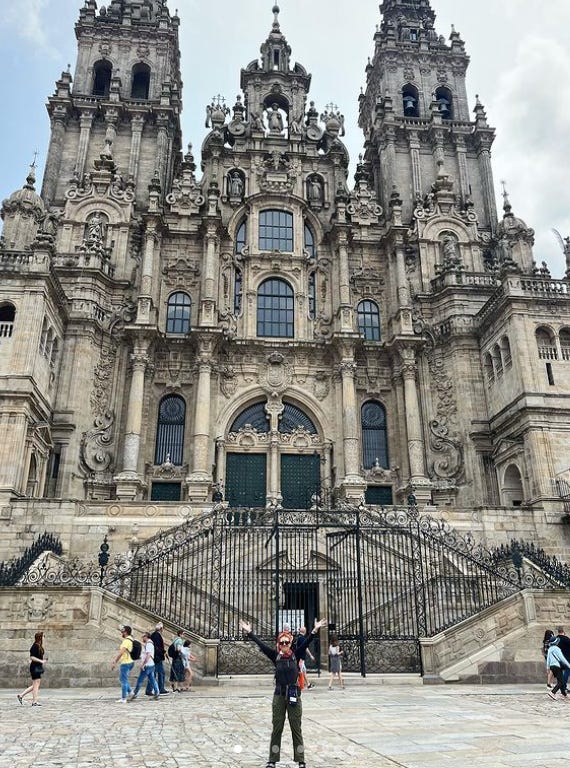
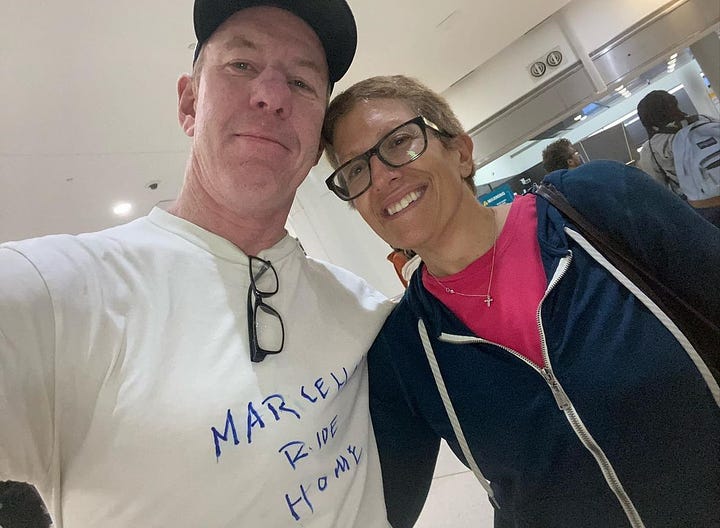
The spiritual aspects are all cliches that are so true that it's almost hilarious. It's literally one step at a time. If you think about walking 20 miles, your brain just says “What? We’re doing what today? No.” But then you think, “Okay, I just need to take the next step, and the next step after that, and the next step after that,” and it becomes this mental game with yourself. At the end, when you get to Santiago you get a little certificate and you’re celebrating with all the other pilgrims in the piazza. It may sound funny, but I felt very emotional. I was proud of myself. I was proud that I could do hard things, proud that I could really be alone, and proud that I really like my own company.
If you could go back in time and give advice to your 25-year-old self, what would you tell her?
I would tell her it's never as bad as you think. Patience is on your side. Learn to be patient and stop obsessing about your body. It just kills me that I just spent so much time and energy obsessing about stuff that really doesn't matter.
Just make yourself happy. You're never going to make your parents happy. You're just not. If you did everything the way your parents wanted you to, would they have been any happier? Live for you.
Belle Curve Stories is about women navigating life with grit, grace and growth. What do these three words mean to you?
I love those words. Those words mean that you are courageous. You are brave. You are curious. You want to challenge yourself, you're not stagnant. You just want to challenge yourself and continue to grow.
I've had these thoughts in my head about starting my own business or writing. Sitting down to really write is not something I’ve ever done before. I’d like to challenge myself in those ways, but there's still a lot of fear there. I want to break the cycle of being fear minded. Also since I've left corporate America, I want community.
As told to and edited by Teresa Bellock and Sandra Ditore.
Marcella Regniault, 62, is a former sports media executive, an adventurer, and a Camino de Santiago pilgrim. She just finished her second Camino, this time via a route through Portugal. Marcella says there’s an old saying: “The Camino doesn't give you what you want. It gives you what you need.” She recommends the experience.


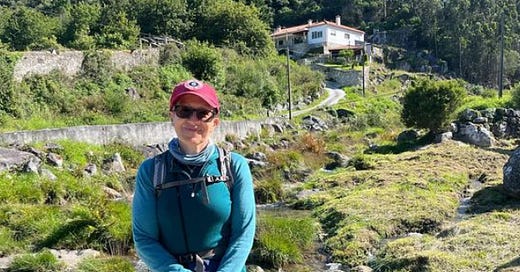


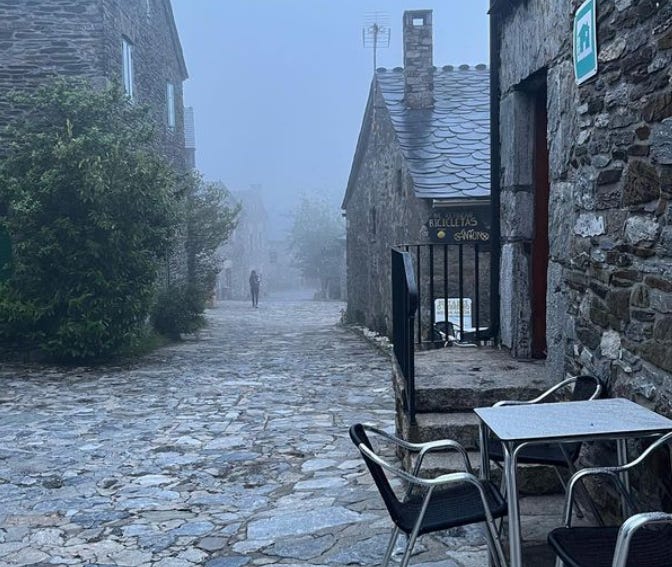
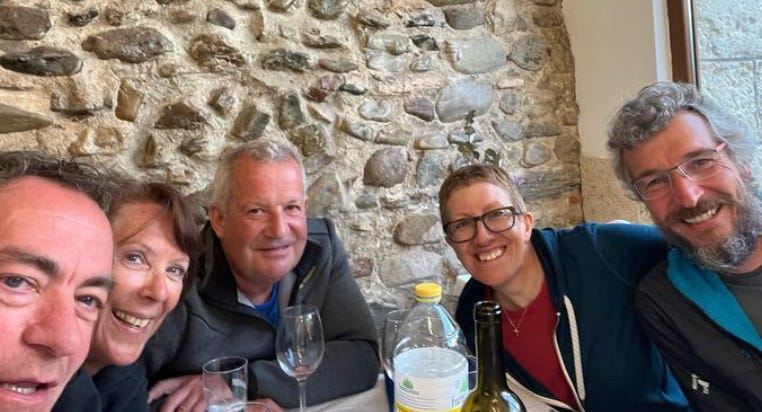
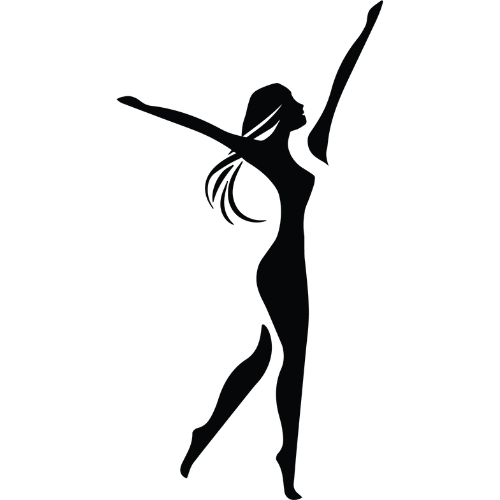
I love this story. As I age, I'm 56, I find walking to be more and more important to me. It makes me feel alive and energized, throw in a hill and all the better. The physical challenge and the breathing, some sweating and the scenery. I interviewed a woman a few years ago who complete a challenge: Run the Year, but she walked and discovered her self love. Here it is..https://www.womenssurvivalguide.com/p/love-yourself?utm_source=publication-search